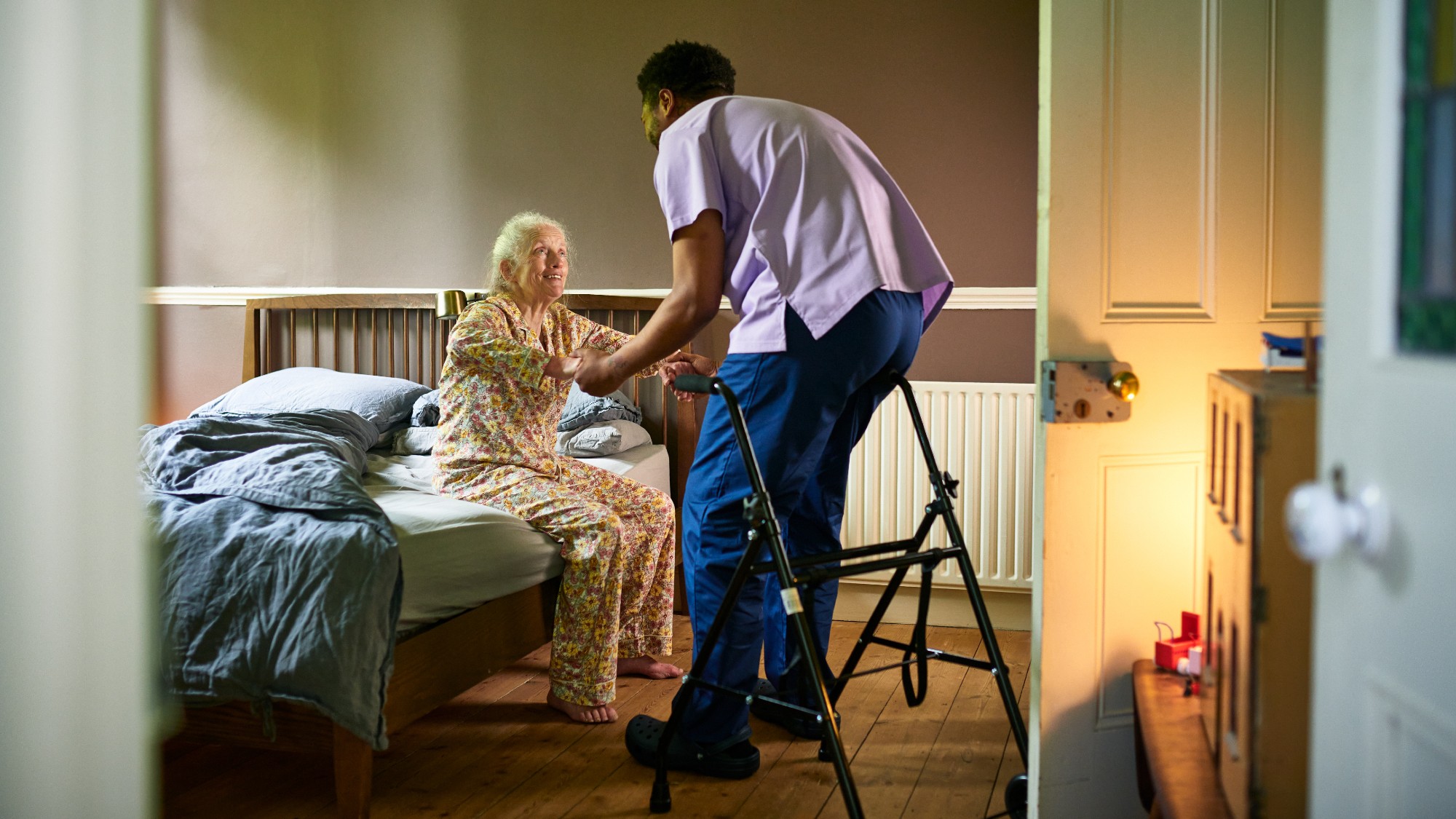The cost of later life care and how to fund it
Social care costs are rising – here is how much you could end up paying

A free daily email with the biggest news stories of the day – and the best features from TheWeek.com
You are now subscribed
Your newsletter sign-up was successful
The rising cost of care is having a major impact on families doing their best to look after their loved ones.
Saving for a rainy day is "hard" enough, said the Financial Times (FT), but people with elderly parents also increasingly have to worry about about "spiralling costs" for social care.
It comes as the Alzheimer's Society highlighted that dealing with dementia is having an "economic impact", said the i newspaper, leaving families "forced to give up the equivalent of £51,000 a year" to pay for private long-term care.
The Week
Escape your echo chamber. Get the facts behind the news, plus analysis from multiple perspectives.

Sign up for The Week's Free Newsletters
From our morning news briefing to a weekly Good News Newsletter, get the best of The Week delivered directly to your inbox.
From our morning news briefing to a weekly Good News Newsletter, get the best of The Week delivered directly to your inbox.
It means that people are now worried about the financial, "as well as physical and mental impacts, of dementia", said FTAdviser.
How much does social care cost?
Unlike using the NHS when you are ill or injured, long-term or social care is "rarely free", said AgeUK, and more often than not you will need to pay for residential care or support at home. Care fees will depend on the "level of need and the amount of assets you have".
The two main options are a residential care home, where you have support with personal care and "day-to-day tasks like cleaning and cooking", explained CareUK. Others may be better off in a nursing home to cater for "medical needs".
The cost of a care home also depends on "where you live, what type of care you need, your savings and property and the care home provider", said CareHome.co.uk.
A free daily email with the biggest news stories of the day – and the best features from TheWeek.com
Residential care can cost an average of £1,160 per week or £1,410 if you need a nursing home, according to CareHome.co.uk. Care homes providing dementia support will normally charge a "higher fee", added the website, at £1,205 per week for a residential home or £1,447 for nursing homes.
If you just need to pay for a carer to visit your own or a loved one's home, a typical hourly rate is around £20, while a live-in carer could be £800 per week, said the NHS. However, it can cost up to £1,600 "if you need a lot of care".
What support is available?
Long-term care "can be expensive", said Independent Age, and the first step is to have a care needs assessment from your local council, followed by a financial assessment.
The financial assessment, or means test, works out how much you'll have to pay towards the cost of your care, the charity explained, and "nearly everyone" will have to contribute.
Care costs may be partially or fully covered if the person's assets or savings are below £23,250 in England and Northern Ireland, which is rising to £100,000 in October 2025. The threshold is £32,750 in Scotland and £50,000 in Wales.
The assessment includes the family home, said The Times Money Mentor, unless that is where care is being provided or someone else is still living in the house.
Some applicants may consider "giving away their home or money, perhaps to relatives, friends or charities" to reduce their assets, said AgeUK, but the charity warns that the council may decide this is a "deliberate deprivation of assets" and still include the values in their assessment.
Those with "intense, complicated or unpredictable" medical or health needs may qualify for NHS continuing healthcare funding, said MoneyHelper, but the person will need to pass an assessment.
You need to apply through your local clinical commissioning group, and are more likely to qualify if you have "mostly healthcare needs rather than social care needs", said MoneyHelper.
How to fund social care
The exact care costs depend on where you go but if you have a specific home in mind, "it could be worth budgeting what you will need for it, bearing in mind inflation", said Investors' Chronicle.
Without "sufficient savings, investments, a property portfolio or a decent pension to cover the costs", said The Times Money Mentor, you may need to consider other options to pay for care such as borrowing money from friends or family, moving to a smaller home or even raising cash by taking in a lodger.
Insurance policies to cover care costs no longer exist, said the FT, which leaves many homeowners accessing cash tied up in their property through equity release. This helps owners "generate funds from property without selling it".
Taking financial advice so you can set money aside and plan for care costs is important, the financial publication added.
Others are relying on their "children's goodwill" though, with one FT reader stating that they have gifted ISA investments to their daughters on the condition that they "please not spend the money but save it" in case long-term care is needed.
Marc Shoffman is an NCTJ-qualified award-winning freelance journalist, specialising in business, property and personal finance. He has a BA in multimedia journalism from Bournemouth University and a master’s in financial journalism from City University, London. His career began at FT Business trade publication Financial Adviser, during the 2008 banking crash. In 2013, he moved to MailOnline’s personal finance section This is Money, where he covered topics ranging from mortgages and pensions to investments and even a bit of Bitcoin. Since going freelance in 2016, his work has appeared in MoneyWeek, The Times, The Mail on Sunday and on the i news site.
-
 6 exquisite homes with vast acreage
6 exquisite homes with vast acreageFeature Featuring an off-the-grid contemporary home in New Mexico and lakefront farmhouse in Massachusetts
-
 Film reviews: ‘Wuthering Heights,’ ‘Good Luck, Have Fun, Don’t Die,’ and ‘Sirat’
Film reviews: ‘Wuthering Heights,’ ‘Good Luck, Have Fun, Don’t Die,’ and ‘Sirat’Feature An inconvenient love torments a would-be couple, a gonzo time traveler seeks to save humanity from AI, and a father’s desperate search goes deeply sideways
-
 Political cartoons for February 16
Political cartoons for February 16Cartoons Monday’s political cartoons include President's Day, a valentine from the Epstein files, and more
